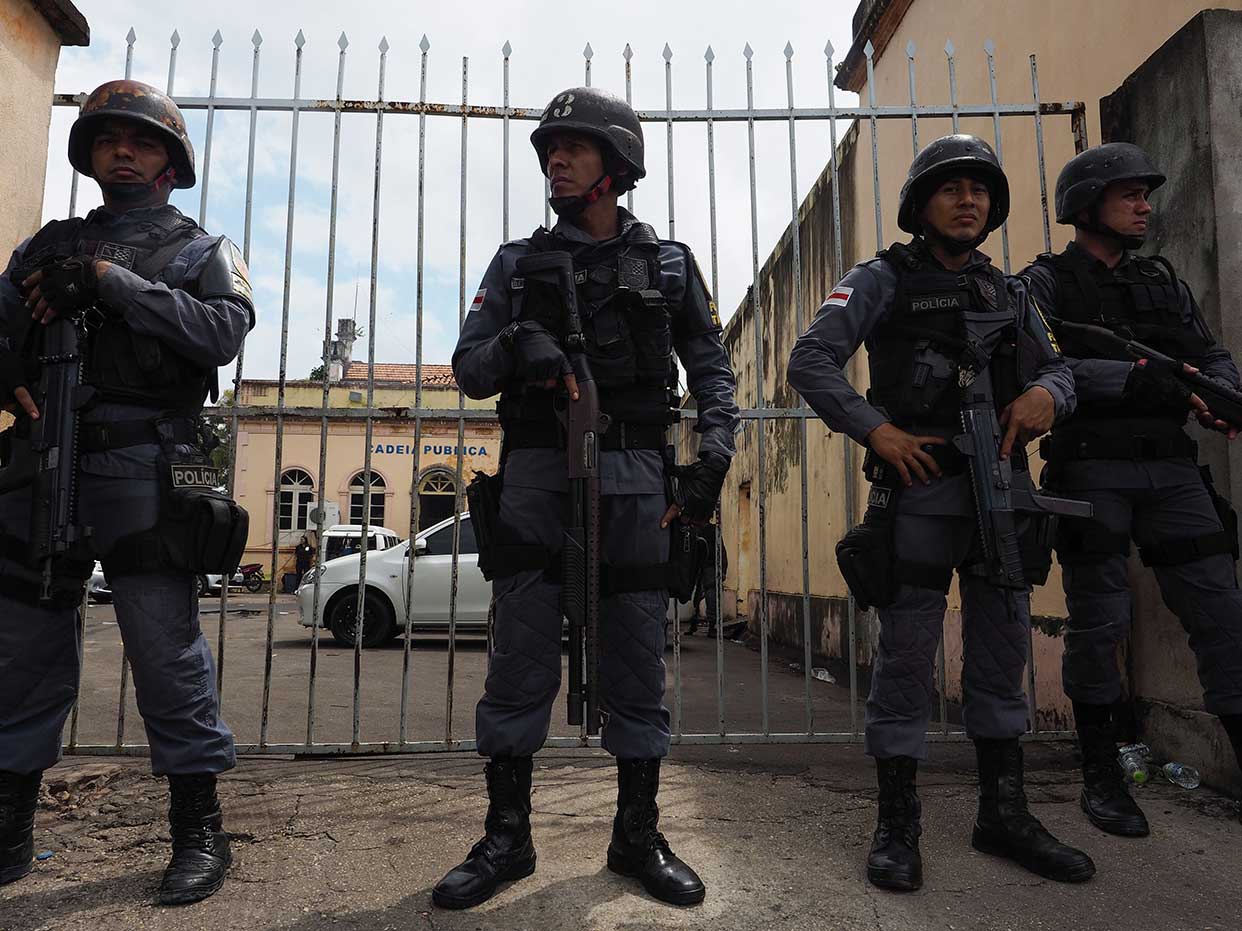Is Brazil returning to military rule?
Army forces to take control in Rio as gang crime rises

A free daily email with the biggest news stories of the day – and the best features from TheWeek.com
You are now subscribed
Your newsletter sign-up was successful
The Brazilian army is to take over security in Rio de Janeiro following a violent crime spree that marred the city’s famous carnival celebrations last week.
It is the “first intervention of the armed forces since Latin America’s largest country returned to democracy three decades ago”, following 21 years of military dictatorship, says the Financial Times.
Signing the decree on Friday, President Michel Temer admitted the move was “extreme”, but said organised crime has almost taken over Rio. “It is a metastasis that spreads around the country,” Temer said.
The Week
Escape your echo chamber. Get the facts behind the news, plus analysis from multiple perspectives.

Sign up for The Week's Free Newsletters
From our morning news briefing to a weekly Good News Newsletter, get the best of The Week delivered directly to your inbox.
From our morning news briefing to a weekly Good News Newsletter, get the best of The Week delivered directly to your inbox.
The measure, which will be in place until the end of the year, “is a response to growing demands ahead of the October general elections for a crackdown on crime and violence”, says Bloomberg.
Robberies and gunfights during the Rio Carnival, followed by a storm that killed four and caused further chaos, “have heightened a sense that the city is slipping out of control”, says The Guardian.
Although this will be the first time the army has taken full control of a Brazilian city’s security since the country introduced a new constitution in 1988, there was a military occupation of a Rio favela in 2014-15.
The latest security move could affect the outcome of this year’s election, according to Robert Muggah, of security think-tank Igarape Institute. With Temer’s popularity in the single-digits, “a ‘tough on crime’ approach plays well with the public”, Muggah told the FT.
A free daily email with the biggest news stories of the day – and the best features from TheWeek.com
However, Mauricio Santoro, a political scientist at Rio de Janeiro State University, told the newspaper that the security situation could benefit rival candidate Jair Bolsonaro, a right-wing politician and former army captain, who is running second in opinion polls.
-
 The environmental cost of GLP-1s
The environmental cost of GLP-1sThe explainer Producing the drugs is a dirty process
-
 Greenland’s capital becomes ground zero for the country’s diplomatic straits
Greenland’s capital becomes ground zero for the country’s diplomatic straitsIN THE SPOTLIGHT A flurry of new consular activity in Nuuk shows how important Greenland has become to Europeans’ anxiety about American imperialism
-
 ‘This is something that happens all too often’
‘This is something that happens all too often’Instant Opinion Opinion, comment and editorials of the day
-
 Epstein files topple law CEO, roil UK government
Epstein files topple law CEO, roil UK governmentSpeed Read Peter Mandelson, Britain’s former ambassador to the US, is caught up in the scandal
-
 Iran and US prepare to meet after skirmishes
Iran and US prepare to meet after skirmishesSpeed Read The incident comes amid heightened tensions in the Middle East
-
 Israel retrieves final hostage’s body from Gaza
Israel retrieves final hostage’s body from GazaSpeed Read The 24-year-old police officer was killed during the initial Hamas attack
-
 China’s Xi targets top general in growing purge
China’s Xi targets top general in growing purgeSpeed Read Zhang Youxia is being investigated over ‘grave violations’ of the law
-
 Panama and Canada are negotiating over a crucial copper mine
Panama and Canada are negotiating over a crucial copper mineIn the Spotlight Panama is set to make a final decision on the mine this summer
-
 Why Greenland’s natural resources are nearly impossible to mine
Why Greenland’s natural resources are nearly impossible to mineThe Explainer The country’s natural landscape makes the task extremely difficult
-
 Iran cuts internet as protests escalate
Iran cuts internet as protests escalateSpeed Reada Government buildings across the country have been set on fire
-
 US nabs ‘shadow’ tanker claimed by Russia
US nabs ‘shadow’ tanker claimed by RussiaSpeed Read The ship was one of two vessels seized by the US military